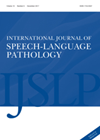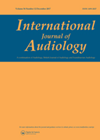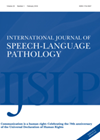
Journal Reviews
Risky behaviour: do care homes follow dysphagia recommendations?
A huge proportion of elderly people living in residential care homes will develop dysphagia. In Australia this is estimated at close to two thirds of all residents. It is the role of the speech and language therapist to make recommendations...
Bringing aged care back
Worldwide, our older population is increasing, and thus a need for the provision of care to older people is also increasing. Aged care may be informal, provided by unpaid carers; or formal, provided or subsidised by government or other organisations....
CATE in people with dementia
Behavioural hearing tests may be difficult to perform for people with dementia. The aim of this study was to investigate if the cortical automatic threshold estimation (CATE) may be used as an alternative to the pure tone audiometry test. Six...
Remembering how to speak
Reminiscence therapy (RT) is an approach that provides people with dementia opportunities to recount nostalgic memories and access thoughts for communication. It is one of the most commonly used therapies in aged care settings. The aim of RT is to...








